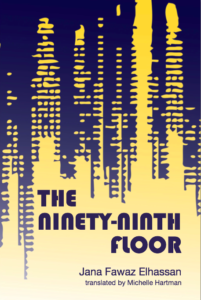
Photos by Natasha Jahchan.
beirut and mount lebanon
By RAED RAFEI

In the living room of my parents’ home in Tripoli, Lebanon, an elaborate family tree is displayed in a golden frame. It is a constant reminder of a fatalistic vision of life’s ultimate purpose: reproduction. Males are depicted as branches; females as leaves. The thriving of the tree relies on branches like mine. A single man who bears no new branches or leaves could condemn an entire lineage to an end.
Hani Nuwayhid first heard the professional mourners sing at his sister’s vigil on a winter night in ’84. He was ten. His older sister, Serene, lay in a white dress on a bed propped in the middle of the parlor. Her cheeks were powdered red and her silky dark hair scented with rosewater. Female relatives dressed in black and covered in wool quilts sat in chairs around the bed in the dim light of kerosene lamps. Every so often, a few stepped into the winter room to warm themselves by the stove and feed it with pinewood. The icy north wind howled through the trees of the village, banging at the frosty windows.
With REWA ZEINATI

T-Marbouta, a restaurant in Beirut. Photo by author.
Your name: Rewa Zeinati
Current city or town: Beirut
How long have you lived here: On and off for twenty years
Three words to describe the climate: Mostly reasonably moderate
Best time of year to visit? All year, but if I really have to choose I would say between March and June

Translated by MICHELLE HARTMAN
New York, Spring 2000
When I first got together with Hilda, I used to enjoy contemplating her reflection in the mirror for hours. I would intentionally take her to cafés and other places filled with mirrors. I’d look at her features in the mirror more than I’d gaze at her directly, as if purposely creating a distance between the physical being that was ostensibly her and her reflection, because a person’s mirror image reveals more of who they really are; it reveals, in fact, the inner self, and to look upon that, as gratifying as it is, requires extraordinary courage.
Translated by ANNA ZIAJKA STANTON
My Japanese wife Takara told me once that she saw how I turned all things into the substance of a novel. This was fine, she said, but in my relentless pursuit of doing so, I overlooked many aspects of real life.
“The things around us are neutral,” she said. “On an equal plane. We are the ones who raise them up high or bring them down. Disgust is as we define it. Morality is as we define it too. We define right, and we define wrong. We are obsessed with defining everything external to ourselves. Yet this does not mean that we acknowledge what we have defined. Things are by their nature simple, but they coexist within a circle of complex relationships. You, when you write, complicate things and simplify the relationships among them,” she said. “Can you deny it? Even stories that are not trying to provoke social or political changes and are only meant to entertain, most of them simplify the relationships among their characters. Perhaps simplicity in relationships is what we desire in an alternate reality? Even cheap melodramas, we relate to them because they entertain hidden parts of our souls. Do you tell stories to entertain? Is life entertaining, anyway? You do not know? Maybe? No? It is not important. The point is that when you see everything as a story, you are constructing a perfect scene, so you let yourself overlook everything that has no place in your idea of it.”